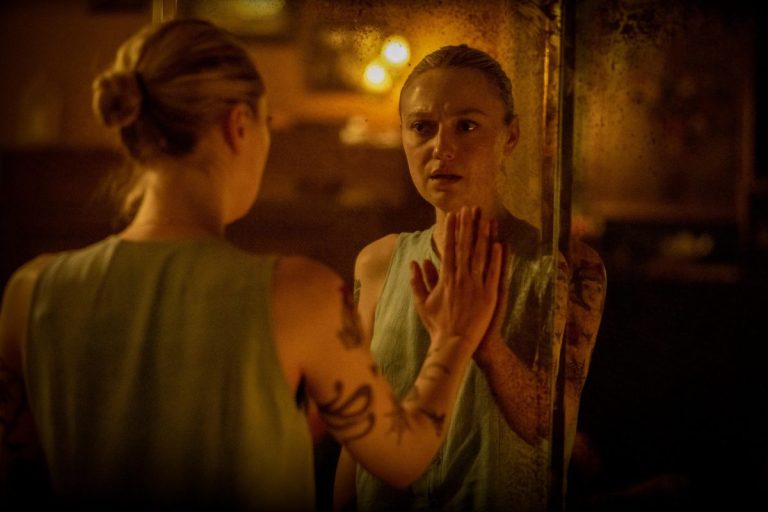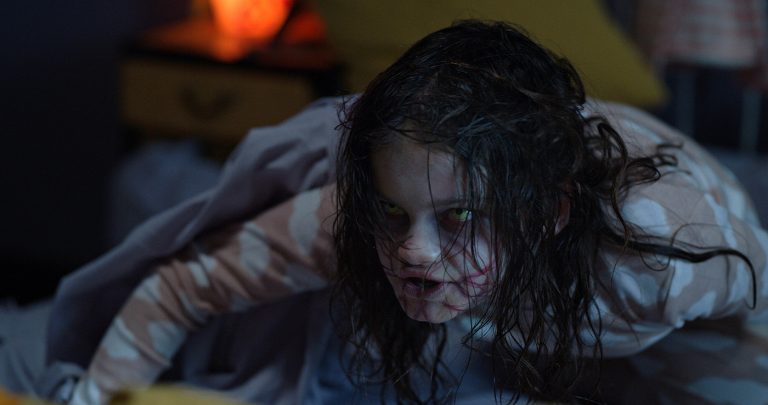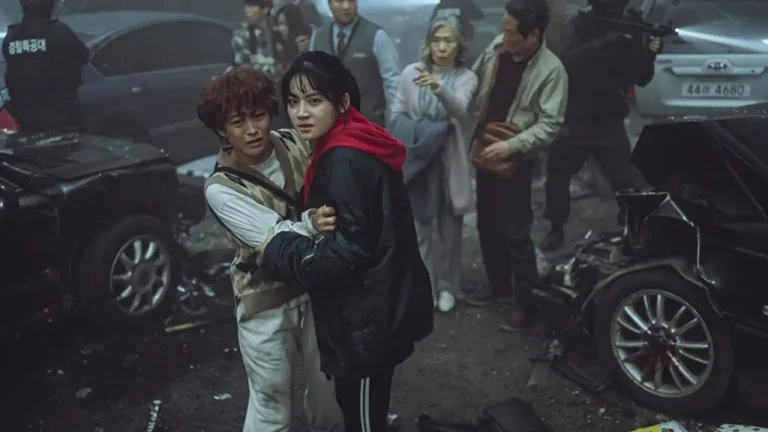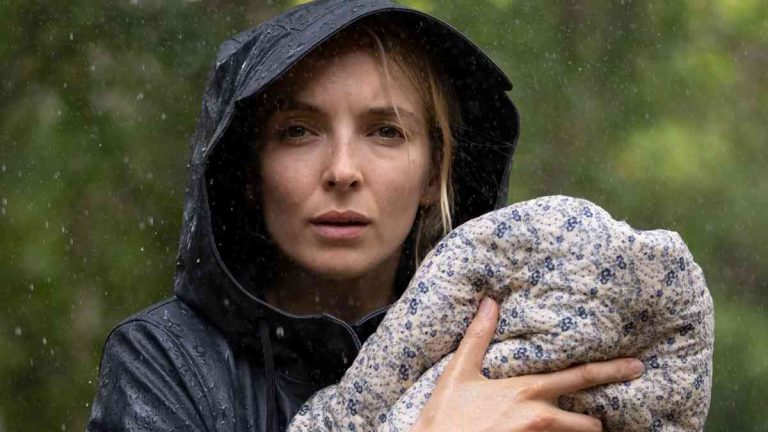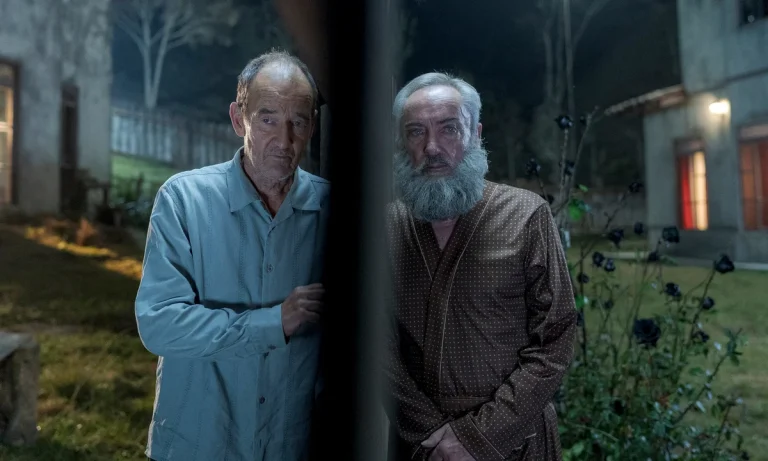Leonardo van Dijl’s debut feature “Julie Keeps Quiet” was one of 2024’s most visceral discoveries, plumbing a systemic excavation through the tale of a tennis player who has to contend with serious allegations against her coach. Amidst mounting pressure on Julie to speak up and come forth with her experiences, she chooses to retreat. A febrile, tightly composed drama, one whose silences cut deep and scathingly, “Julie Keeps Quiet” is a singular, incisive portrait of systems and cultures that aren’t well-equipped to respond to or engage with victimhood, anchored by a tremendous, unforgettable Tessa Van den Broeck.
The film, which was Belgium’s entry to the 2025 Oscars, is slated to open in select US theatres from March 28. Ahead of the release, High On Films’ Debanjan Dhar sat down with Dijl for an exclusive conversation.
The interview has been edited for length and clarity:
Debanjan: I know the ending came to you as an epiphany. But I was curious about the research that went into the film and the conversations you had with therapists, lawyers, academics, and coaches, which let you build this film’s groundwork? Did you write the script only after that was done?
Leonardo van Dijl: Sometimes, I asked practical, direct questions. Most of it was largely technical. I wanted to explore the power dynamics, structures and mechanisms Julie is in, how both her coach and the club weigh on her. Sometimes, I had a scene concerning tennis that I wanted help with. It took me four years to have development money, there were many drafts. These people stayed in conversation with me even till the editing. I don’t really like the term ‘sensitivity readers’ but they had a huge influence on the question of ethics. I wanted to show that abuse isn’t merely happening in isolation but as part of the social complicity that enables it.
At the same time, I didn’t want the tennis world to be shown as corrupt. I relied on them to achieve a certain balance in telling a story that exposes the bigger picture but also focuses on the constructive part of healing. The film shows the emancipation of the victim, but it was also important to me to show that the community, too, starts to be emancipated. The community begins to get its grip on the situation and grow. The biggest help of my research was learning about safeguarding children practices; it became an anchor point and I thought of applying it into how the new coach works. That’s how Julie gets centred in herself.
Debanjan: Tessa is just astonishing. You said how she let the film be even quieter. Talk to me about working with her. Did you do a lot of rehearsals?
Leonardo van Dijl: Yes, a lot. Rehearsals were key. Tessa was a tennis player and didn’t have acting experience at all. I don’t think it was necessary. It was important for me to apply what I learnt about safeguarding in research to how I’d work with her as a director. I only asked her if she would consider doing the role. It was more open than just me offering it to her. I gave her time to decide. She needed to have the possibility to decide for herself whether she liked it or not after doing the rehearsals.
You can’t really say yes to a question if you don’t know how it functions. Often, we did rehearsals at the tennis court. Other times, we’d do a scene, and I’d ask a coach to take a look at it. Once we were set, they knew what they had to do. It was also good for me because then we could be relaxed and dive into it. All big decisions were made during rehearsals.
Coming to the question of Tessa making the film even more silent, this was shot on film, so there was only a limited number of takes. It was not my intention to make a quiet movie. Julie becomes silent only under pressure. While watching the monitor, I realised we didn’t need that many dialogues. Tessa has this transparent quality of being distant and close at the same time. Adding dialogues would have been childish. She brought maturity to Julie and made the silence heavier and universal.
Debanjan: You used a lot of tennis terms to explain to the actors how scenes were written and how they needed to be approached. Could you elaborate more?
Leonardo van Dijl: In dialogue, I’d often tell them they are on defence, other times on offence. The scene where Julie goes to meet the old coach is almost like a tennis game, like she’s being cornered or bullied by a player for not playing by the rules. I told Tessa I didn’t want Julie’s silence to hound her. It was crucial to make the separation between Tessa and Julie. Acting is a game; it’s about lying and cheating and fun. We made a movie that’s dramatic and violent but we did it in peaceful, pleasant ways.
Debanjan: The spare bits of music the film does use, the chorus that punctuates is super effective and overwhelming. Talk to me about what drew you to Caroline Shaw’s music and what brief you gave. Were you always certain you needed those pockets of music?
Leonardo van Dijl: I was inspired by the Greek tragedy of Antigone, who fought for her brother’s burial rights, dared to say no, and stood for human rights. In Julie’s keeping quiet, there’s the plea of trying to have people listen to her. The music, hence, becomes like an intervention. I told Caroline I wanted the music to embody the inner conflict Julie has. It’s the only moment that we can address the silence. With every chapter, the music becomes denser, layered, and complex. You see how it opens up. By the end, you can hear the whole song.
Debanjan: Tell me about the funding. Did you ever have pushback to add more explanatory, expository scenes? How did you navigate that?
Leonardo van Dijl: Of course, there were many push backs but they made me only sharper. Once we had the editing, there were no more hostilities. It was as if the world was waiting. By the time the edit was ready, people were eager to embrace it. It’s important to remember that sometimes a ‘no’ doesn’t necessarily mean that it’s bad but that it may not have been done before, so people can’t imagine what it’d look like. But as a director, as an artist, you must not give up but see it just as a challenge.
It’s important for me to bring kindness and poetry back to a narrative that’s extremely polluted and divided between actor and reactor, enabler, aggressor, and victim. But sometimes, those roles are shifting. For speaking up, you may become the aggressor. I knew I wanted to go back to the basics. All these conflicts that weigh on the new generation, these things will keep happening. We have to be careful with the language we apply because it can closet the victims in a burdensome responsibility; this disclosure of speaking up can stifle. The more pressure there is on people, the more they will remain silent.
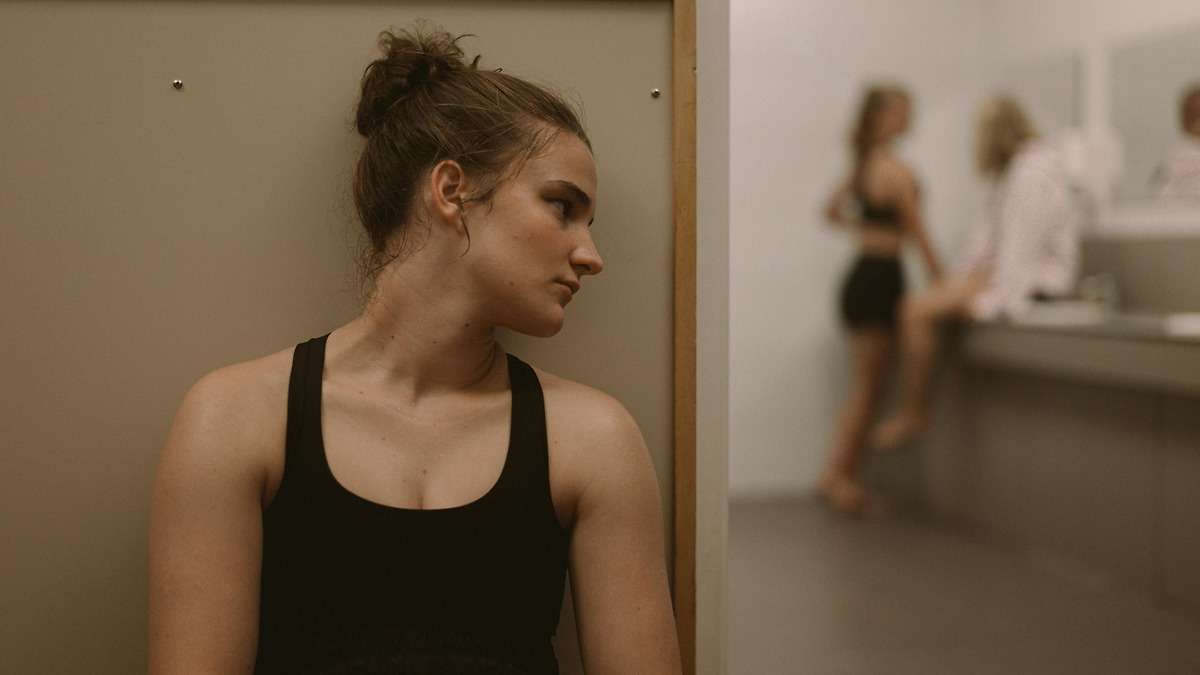
Debanjan: You said somewhere about being inspired by other filmmakers like Lukas Dhont and your hopes that maybe this film becomes that stepping stone for those starting out. Talk to me about this need of an awareness of holding the door open for future generations…
Leonardo van Dijl: Once I finished the film, I realised doubly the battles every filmmaker before me has fought. I want to inspire, through my film, others to step forth with their stories, their Antigones. As directors, we are more in an ecosystem than competitors. If one embodies his true voice, he encourages another to go the direction they need to proceed.
We’re part of a community of makers. For example, a movie like “The Substance” has nothing to do with Julie but I do feel they are sisters. She fought a lot to make it the way she wanted it to be. The fact that Demi Moore didn’t get the Oscar is what the film itself anticipated. The memes on this prove Coralie Fargeat’s point. It’s the only movie people are talking about now that the award season is over. It fuels me to make my next film even more silent. As she says, we are one. As directors, we often say we are autonomous creators. That’s not true, we are always influenced by one another.
Debanjan: I want to take a couple of recommendations. Any recent film/emerging filmmaker whose work has caught your attention?
Leonardo van Dijl: The Blue Sun Palace! It’s fantastic.
Debanjan: Do you watch a lot at festivals?
Leonardo van Dijl: Actually, I don’t. I try booking but then end up canceling because time’s so short and you have to do press. But I do have a nice cinema just five minutes away from my home. So I can catch all the films I missed during the festivals. I love being at the cinema, being immersed in the dark for two hours. Going to the cinema is like a spa day for me. Yesterday, I watched Cruel Intentions on TV. I think the movie aged well.
Debanjan: You made a sort of equivalence between an athlete and a feature director. I’d love to hear more about the leap from short films to feature films. Looking back, are there certain basic things you feel you ought to have been prepared for?
Leonardo van Dijl: I have to say it’s the whole process after the movie is done, travelling with it and having to talk about it. I am not shy, but I want the movie to be seen, not me. I’m not a musician who has to tour. I definitely had to reinvent myself. In the beginning, it was scary but I did gradually learn to be open to it and enjoy it. I started to appreciate it.
I want Julie’s silence to be heard. It was nice to travel the world and talk to people about many issues. But for my next film, I don’t want to be busy with the outcome again, instead, I want to focus on the story, intentions, and making characters authentic. If you can work in the shadows, you can create something transparent and clear. I made this film, first and foremost, for individuals like Julie. I felt the film could help people sit with their silences, break them under their rules, and have agency over their narratives.


